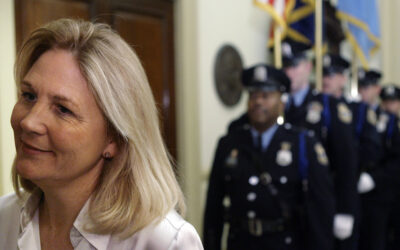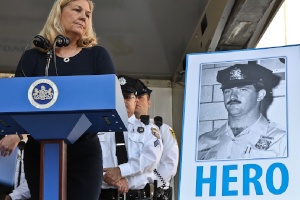JAMAL: His Own Worst Enemy
Latest News
Abu-Jamal Moved to Prison Northwest of Philly Convicted killer moved to medium-security prison
Convicted killer moved to medium-security prison Former death row inmate Mumia Abu-Jamal has been transferred from a maximum-security prison in...
Decision on Mumia Abu-Jamal Sentence
Philadelphia—The District Attorney’s Office has decided after long and careful consideration, as well as consultation with the family of Officer...
The Pulse: After husband is murdered, 30 long years of phone calls
In California last Tuesday, Maureen Faulkner's telephone began ringing at 6:30 a.m. When she looked down and saw the instant onslaught of calls from...
DONATE TO OUR CAUSE
NEVER FORGET DANIEL FAULKNER
Without the support of Justice for Police Officer Daniel Faulkner, the Faulkner family – and specifically Maureen – could not afford to keep up the vigilant fight.


